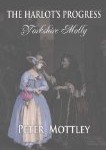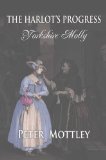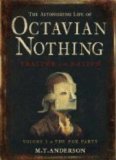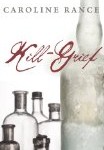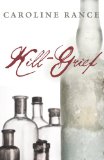Yorkshire Molly is the first in a trilogy of books that breathe life into Hogarth’s series of etchings, The Harlot’s Progress (Please note that the previous link takes you to pictures of the etchings, which contain plot spoilers).
Set in 18th Century England, the book begins with Molly travelling on a wagon from York to London, excited at the prospect of marrying her wealthy cousin. Unfortunately, the moment she arrives in London Molly is lured into a whore house, where her innocence is brutally taken from her. With her plans in tatters Molly must learn to survive in her dangerous new surroundings.
‘London’s full of dressmakers,’ Mother Wickham said sharply. ‘Every silly child who can thread a needle calls herself a dressmaker. Forget your scissors and thread, girl. The prick of a needle is worth pennies. The prick of a man is measured in guineas.’
This is a fantastic book – it is rich in period detail and the plot is gripping throughout. It had a similar feel to Fingersmith, I’m sure that fans of Sarah Waters will love this book too. There were numerous twists and turns, and although none of them are as shocking as those in Fingersmith it was a fantastic plot, giving a glimpse of life as a notorious whore and in a privileged country home.
If my post hasn’t persuaded you to read it then have a look at the book trailer, as that is what made me want to pick it up!
Isn’t the author’s daughter fantastic? After listening to her I wanted the audio-book version, but unfortunately there isn’t going to be one; there will be a TV adaptation at some point though – I’m looking forward to it!
This book is a must for anyone who loves reading about 18th Century England; I’m hoping they publish the rest of the series soon.
Have you found any books that are similar to Fingersmith?
Has a book trailer ever persuaded you to read a book?
